T.Loafer (閑隅) seats just 10 people, but the tiny cafe has already garnered plenty of media attention for its unique decor.
Its exterior is lined with more than 20 window frames salvaged from old houses and painted in a faded rainbow of colors, while the inside feels comfortably lived in, with large skylights, vintage furniture and shelves lined with books. The cafe has been profiled in the Apple Daily, served as the backdrop for a cover story on singer Yoga Lin (林宥嘉) in The Big Issue and is frequently booked for wedding photo shoots.
But owner Hsu Cheng-wei (徐政瑋) had only one goal in mind when he opened T.Loafer in the spring: to create an intimate cafe that would double as a platform for fair trade goods and items made by Taiwanese artisans.
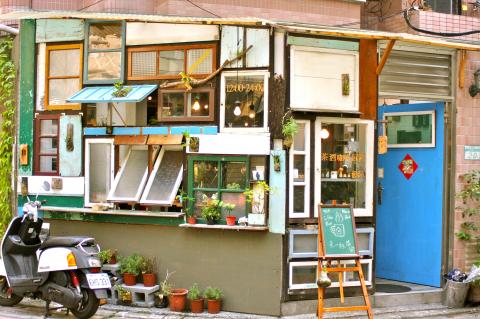
Photo: Catherine Shu, Taipei Times
(T.Loafer’s Chinese name means “small corner,” while the T in its English name stands for the tea served there and “loafer” is what Hsu hopes customers will become while at the cafe.)
Hsu originally wanted to open a hostel for young travelers, but he nixed that plan when he realized that operating costs would be too high. Instead, he focused on his work as a community developer in Sindian, where he works with studio Watch!Touch (手樸隨想), which creates accessories made with natural textiles and dyes.
Over the Lunar New Year, however, Hsu decided he was ready to try his hand at operating a cafe. He had spent his spare time wandering around Taipei City’s lanes and alleyways while studying real estate at university, and was familiar with the neighborhood near Lishui Street (麗水街) in the Shida area.
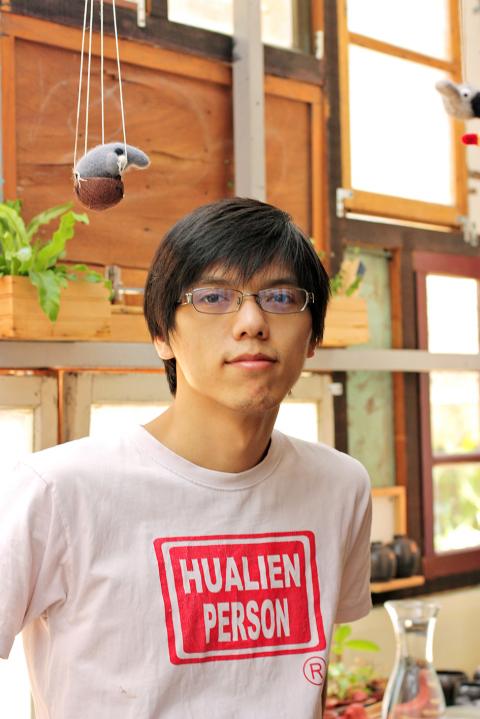
Photo: Catherine Shu, Taipei Times
“I found this space online and thought it was ideal,” Hsu says. “It’s a bit small, but the neighborhood, the environment and the lighting were all perfect.”
Though it is just blocks away from busy Jinshan South Road (金山南路), few cars and mopeds pass by T.Loafer. Instead, pedestrians wandering down the plant-lined alley provide subjects for people watching from T.Loafer’s wall of windows.
When Hsu rented the space, it had an all-white interior. With the help of friends, he completely redecorated the cafe over two months. He replaced the floorboards, added a small, recycled wood bar by the windows and painted the walls a homey shade of olive green. Instant film portraits, gifts from photographers who work in a darkroom downstairs, are taped to shelves.
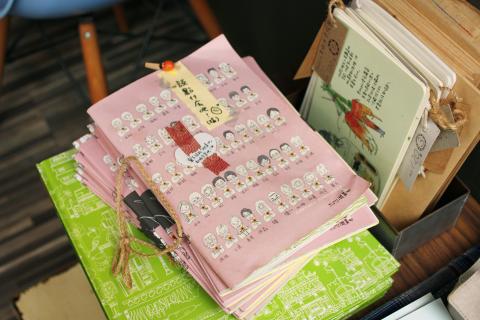
Photo: Catherine Shu, Taipei Times
A gallery of prints by artist Kuo I-kuan (郭以寬) of Chiuzen (沾手) hangs near the entrance, while shelves are lined with handmade items, such as brass and stone jewelry by Su Studio, wallets and scarves by Watch!Touch, hand-carved candles by Izy Home (家?形) and small houseplants in concrete planters by Goodmore.
Other goods include wooden bowls and clay coasters made by craftspeople in Yunlin County and Hsu’s hometown of Hualien.
Despite its popularity as a photo shoot location, Hsu hopes customers will feel free to treat T.Loafer as a second home.
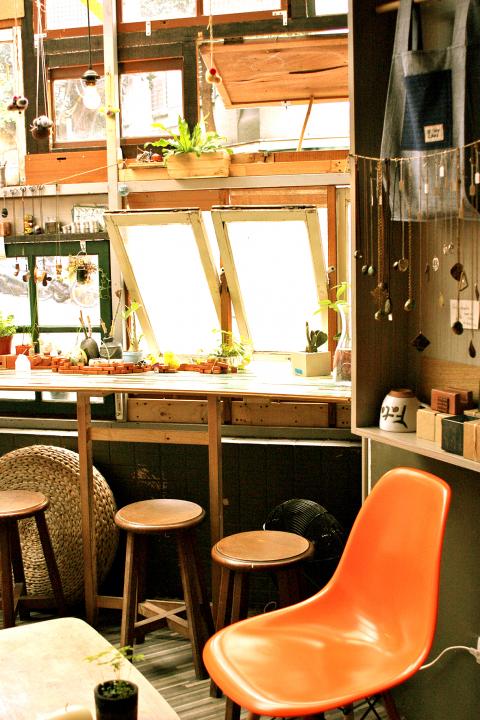
Photo: Catherine Shu, Taipei Times
“A lot of cafes now have very nice, professionally decorated interiors, but the trade-off is that people find it harder to relax in them. We thought why not decorate the cafe by ourselves, the way people decorate their own houses? We want T.Loafer to be a place where people can feel at ease and stay a little while.”
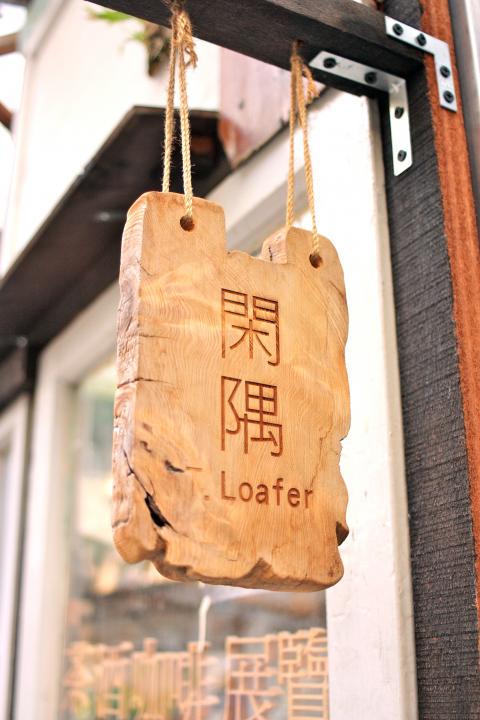
Photo: Catherine Shu, Taipei Times
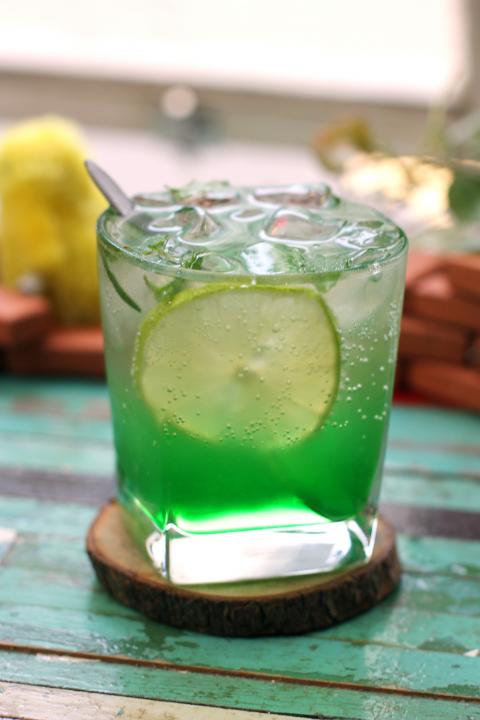
Photo: Catherine Shu, Taipei Times
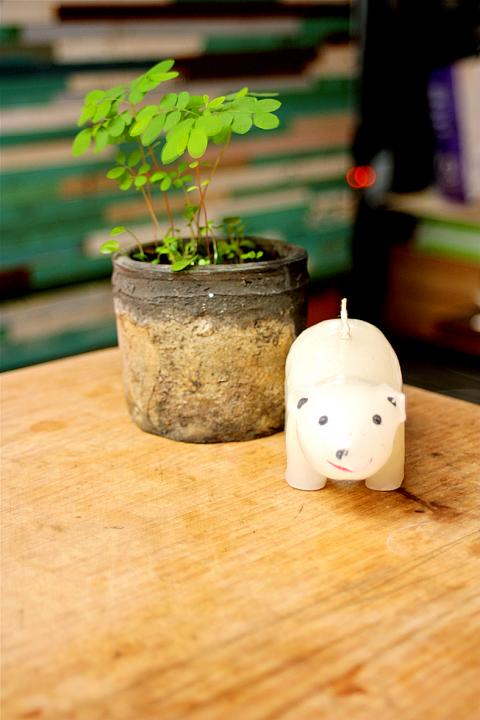
Photo: Catherine Shu, Taipei Times
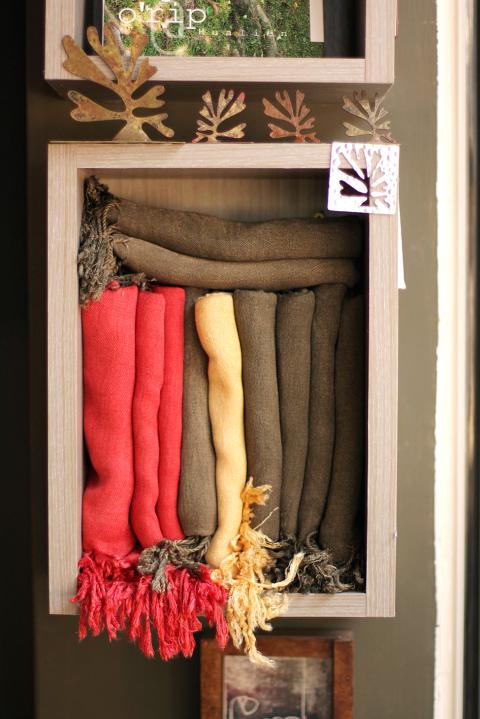
Photo: Catherine Shu, Taipei Times

Growing up in a rural, religious community in western Canada, Kyle McCarthy loved hockey, but once he came out at 19, he quit, convinced being openly gay and an active player was untenable. So the 32-year-old says he is “very surprised” by the runaway success of Heated Rivalry, a Canadian-made series about the romance between two closeted gay players in a sport that has historically made gay men feel unwelcome. Ben Baby, the 43-year-old commissioner of the Toronto Gay Hockey Association (TGHA), calls the success of the show — which has catapulted its young lead actors to stardom -- “shocking,” and says

Inside an ordinary-looking townhouse on a narrow road in central Kaohsiung, Tsai A-li (蔡阿李) raised her three children alone for 15 years. As far as the children knew, their father was away working in the US. They were kept in the dark for as long as possible by their mother, for the truth was perhaps too sad and unjust for their young minds to bear. The family home of White Terror victim Ko Chi-hua (柯旗化) is now open to the public. Admission is free and it is just a short walk from the Kaohsiung train station. Walk two blocks south along Jhongshan

The People’s Republic of China (PRC) invaded Vietnam in 1979, following a year of increasingly tense relations between the two states. Beijing viewed Vietnam’s close relations with Soviet Russia as a threat. One of the pretexts it used was the alleged mistreatment of the ethnic Chinese in Vietnam. Tension between the ethnic Chinese and governments in Vietnam had been ongoing for decades. The French used to play off the Vietnamese against the Chinese as a divide-and-rule strategy. The Saigon government in 1956 compelled all Vietnam-born Chinese to adopt Vietnamese citizenship. It also banned them from 11 trades they had previously

The 2018 nine-in-one local elections were a wild ride that no one saw coming. Entering that year, the Chinese Nationalist Party (KMT) was demoralized and in disarray — and fearing an existential crisis. By the end of the year, the party was riding high and swept most of the country in a landslide, including toppling the Democratic Progressive Party (DPP) in their Kaohsiung stronghold. Could something like that happen again on the DPP side in this year’s nine-in-one elections? The short answer is not exactly; the conditions were very specific. However, it does illustrate how swiftly every assumption early in an